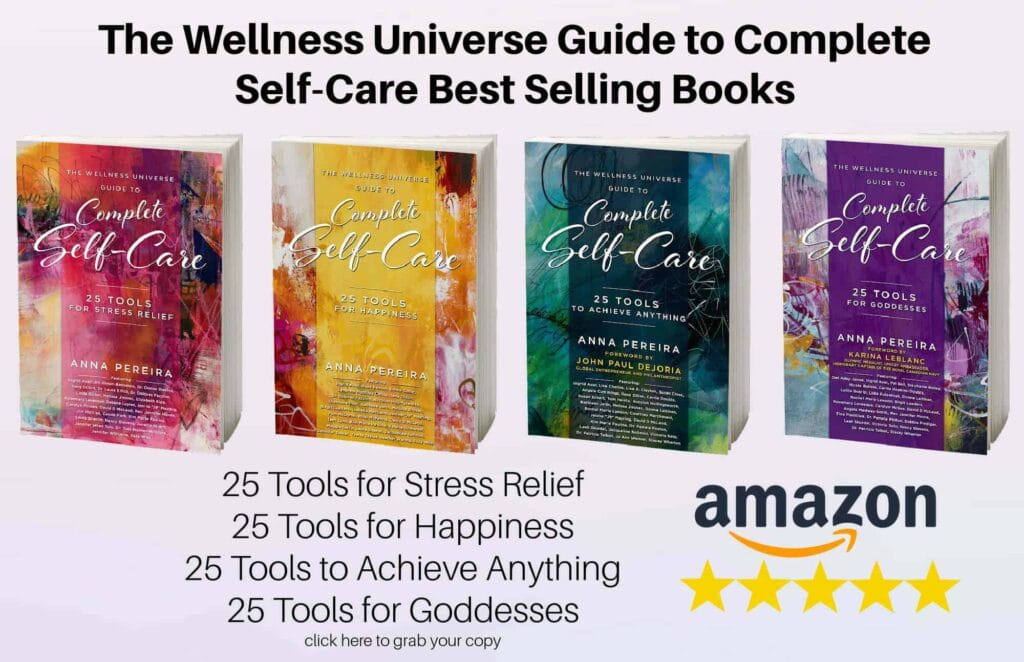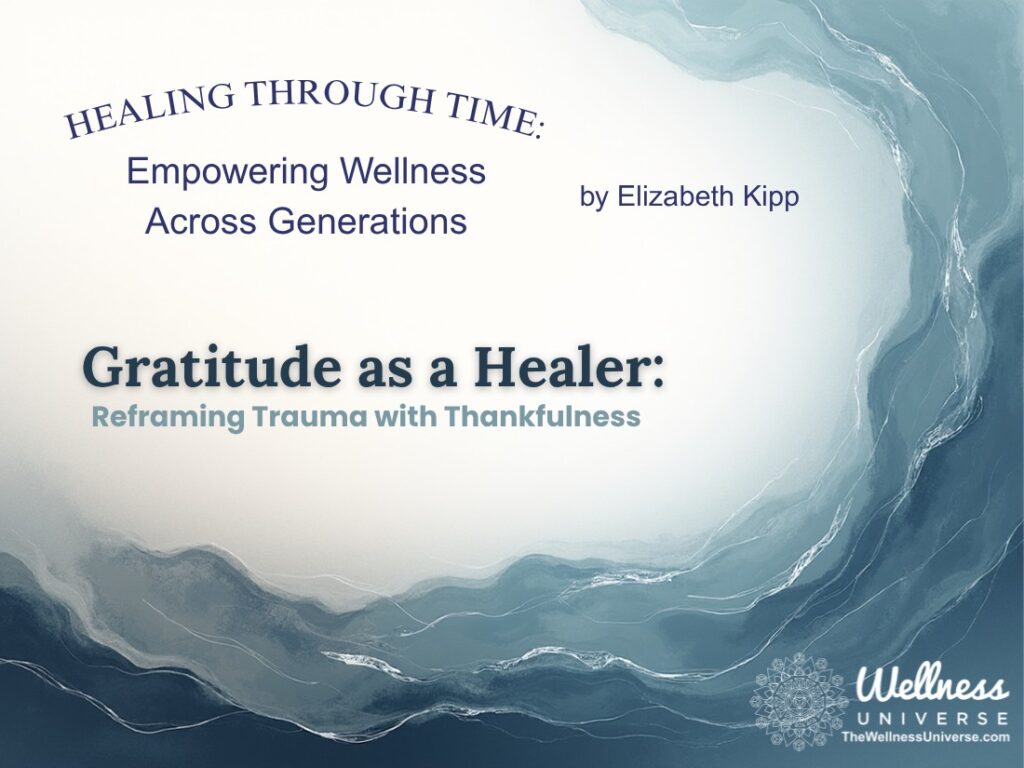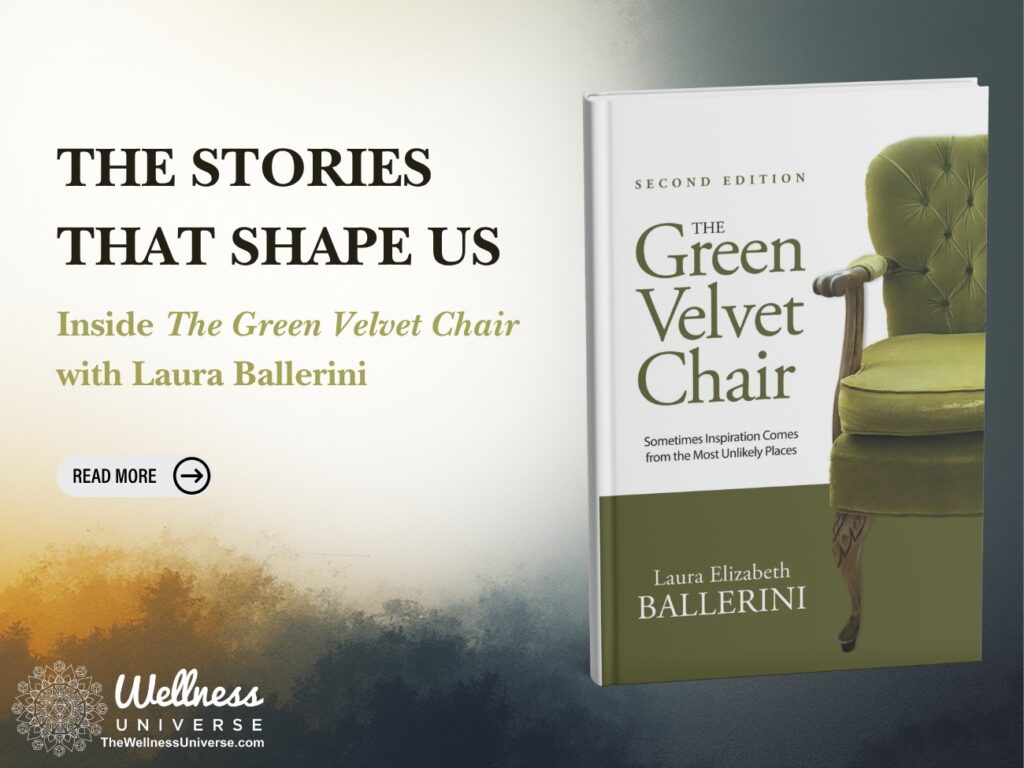“A limitless Source illuminates and comforts us,
enlightening us with truth, wisdom, and love.”
— Jean Voice Dart
What We Don’t Say Still Hurts
I never knew my mother’s father because he died before I was born. When I asked, “Please tell me about Grandpa,” everyone diverted their eyes, changed the subject, or left the room. These behaviors haunted me, and this shame is a part of me still today.
Later, as an adult, I discovered through online investigation that my grandfather ended his life with a 22-caliber pistol at a prominent community event. This brought the family significant trauma, shame, and pain, causing them to sweep things under the rug, never to share the events of that day. I felt my heart sink into my chest as I read the local newspaper description of what had occurred. Grandpa ended his life after learning he was dying from cancer. I felt confused, angry, frustrated, and ashamed.
Why didn’t anyone talk about it?
What were they feeling after that unthinkable act?
How did they comfort one another that evening and in the days, months, and years that followed?
What we don’t say still hurts.
Grief, We Inherit – Healing, We Choose
Decades later, I learned firsthand about suicidal grief. History repeated itself. The father of my child ended his life on Christmas Eve in a similar manner. The shock, anger, confusion, and feelings of abandonment were real and oddly familiar. Old emotions resurfaced from my grandfather’s actions many years ago. I needed to clean this up and stop the cycle of inherited grief and toxic shame.
Although we are all equal as radiant spiritual beings, cultural taboos still exist about mental health. Fortunately, they are not as prevalent now as they were when I was a young child, and many resources are available to help us step forward into a healthier, happier future.
The key to suicidal grief recovery is sharing our feelings, joining supportive communities, embracing resources, forgiving others, and finding ways to share our special gifts with the world. Together, we walk hand in hand, shining our lights of joy and hope.
Understanding the Full Impact —You are Never Alone
When discussing suicide awareness, we often talk about prevention and postvention – the time before and after someone chooses to end their life.
Family members often ask, “What should I have done differently?” “How did this happen?” “Why didn’t I know?” However, the most crucial question is, “What can I do now?”
The first step is to look around. Breathe. Check-in with ourselves, our loved ones, and our community. It’s helpful to know that others have walked this path before us and others will follow.
We each have something unique stirring within us, yet we share our connection to the ultimate Source. This is our magic—our gift to the world. Whether we are bereaving family members or having suicidal thoughts ourselves, we connected. According to the National Institute of Mental Health, more than 49,000 people die by suicide each year in the United States, and The World Health Organization reports more than 800,000 people per year die by suicide worldwide. Studies estimate that 135 people are affected by every suicide—family, friends, and coworkers. This results in hundreds of millions of people affected by suicide.
Why is this important?
It tells us that we are never alone. We stand united. Millions of people have navigated through suicide, survived, and thrived. If you are affected by suicide, there is no doubt that someone is available to support you right now. Someone is sharing their light with you like a radiant beacon shining in the night.
Taking a Hand and Lending a Hand
Today, we don’t sweep suicide under the rug. There is hope. Successful navigation through prevention and postvention stages requires a community—either face-to-face or at the touch of a button. I invite you to reach out, take a hand, and lend a hand.
We live in a remarkable time where we can easily connect with wellness professionals, yet we have the freedom to be known or unknown. Help magically appears at our fingertips without cost: suicide hotlines, grief support groups, health and wellness professionals, local, national, or international mental health communities, and online workshops or classes. Whether we are out walking in Chicago on a rainy night or snuggled in bed in Amsterdam in the wee hours of the morning, we can instantly receive the critical information and compassionate care we desperately need.
Embracing the Signs of the Times
My first reactions to both of my family members’ suicides were, “Why did they do that?” and later, “How am I feeling?” And later still, “Who can help?” During suicide prevention or postvention, it is important to tune in to ourselves, our loved ones, and our environment and look for the signs of the times.
First, we must feel. Only then can we heal.
Each person is a sparkling light destined for greatness. However, when we are grieving the death of a loved one, recovering from the shock of suicide, or contemplating suicide ourselves, red flag behaviors can erupt. These behaviors are simple yet not always noticeable to our loved ones. They are warning signs and cries for help.
- Withdrawal from activities or hobbies (e.g., stopping singing, gaming, or playing tennis)
- Unusual mannerisms, facial expressions, or body postures
- Emotional outbursts (e.g., despair, anger, panic, fear, confusion, guilt, shame)
- Apathy, indifference, robotic numbness, or appearing emotionally vacant
- An increase in fatigue or sleepiness
- An unexpected change in routine, preferences, or appearance (e.g., suddenly wearing gaudy makeup or deciding to sell the car and buy a tractor)
- Poor hygiene and a lack of self-care
- Gradual or sudden weight loss or weight gain.
- Engaging in hurtful or destructive behaviors (e.g., taking drugs, throwing dishes, punching a wall, or discarding a family keepsake)
- Inappropriate or irresponsible behaviors (e.g., stealing, lying, breaking promises, or forgetting to feed or care for a pet).
When we are grieving the loss of a friend, family member, or loved one, it is important to remember that these symptoms are not unusual. However, most people need a helping hand when they have lost their way. Suicide can be unexpected, chaotic, horrific, or shocking. Sometimes, bereaving family members will experience serious mental health challenges like panic attacks, body aches, chronic fatigue, sleep disorders, depression, PTSD, and eating disorders.
You are a resilient, brave, beautiful spiritual being. So, what can you do? It is essential to seek help if you are suffering, unable to help yourself, or concerned for others.
Why is it essential? Because each person is here for a purpose. You arrived on this earth with a creative spark and passion stirring within you. You are a brilliant light, destined to illuminate the world with your magnificence. Many beneficial support systems are available to open doors to the exceptional talents you possess, allowing you to align yourself with your mission.
What Helps? The Power of Presence
Friends, family members, and loved ones often ask, “What can I do?” The secret is the power of presence. People who are mentally aware and deeply connected to others are less likely to attempt suicide. The more isolated and distanced others are, the higher their risk for suicide. Practicing presence works both ways. We must be present with ourselves and others.
So, how do we practice presence?
We can begin by closing our eyes and listening to ourselves on emotional, physical, mental, and spiritual levels. We take note of our feelings and be aware of our surroundings. We feel the texture of a blanket or the smooth surface of a wooden table. We walk outside, breathe the fresh air, look up at the trees, look down at the green grass blowing in the wind, and feel the solid ground beneath our feet. We give thanks and use our creative imaginations to welcome limitless possibilities, envisioning a future of health, wealth, harmony, and happiness. We receive the blessings bestowed upon us while remaining open to receiving more.
Being present with ourselves helps us learn to appreciate and support our loved ones. When we connect with our world, we reduce grief and suffering for everyone. We ask ourselves, “What do I need right now?”
When we are able and ready to help others, we can ask, “Do you need anything? Do you want companionship? Can I help in some way?” Sometimes, bringing a nourishing meal or merely being in the same room is all that is needed. We only need to look at our bereaved loved ones in the eyes and connect Soul-to-Soul with acceptance, peace, and love.
Groups or private sessions with counselors or therapists, whether online or in person, help others take their next steps and be more present. Suicide survivors who attend grief or trauma sessions are at a lower risk of developing complicated mental health challenges.
Choosing Successful Coping Strategies
- Do what is best for today – Remember to tune in, be present, look, and listen. If we aren’t ready to talk, engaging in sports, creative arts, gardening, or other physical activities can be helpful in soothing sorrow. Whether we are helping a loved one or helping ourselves, there are no rules when it comes to grief, but there are rules for mental wellness. If we are suffering and failing to care for ourselves or others, then we need to ask for help.
- Accept community support – Support is essential, but if we aren’t ready to meet with others in person, we can consider an anonymous online group. We don’t need to appear on camera and can communicate via phone or messaging. Research shows that those who are grieving or contemplating suicide benefit from helpful communities and caring connections. The heart is hungry for hope, love, and joy no matter where or when it appears.
- Engage in spiritual or religious practice – Whatever our spiritual practice has been in the past, we must find a way to continue. For example, suppose we can no longer attend church. Instead, we can incorporate a daily practice of reading a spiritual book, praying, meditating, listening to inspirational recordings, or taking a quiet moment to receive wisdom and guidance. Those who maintain spiritual practices are less likely to experience anxiety, depression, and suicide and more likely to experience joy and love.
- Accept good and bad days – It’s normal for most people to have both sunny and stormy days. Life is never all roses and butterflies. We can be gentle with ourselves when something triggers past traumas. It’s alright to retreat to our safe space and nurture ourselves, watch our favorite old movies, sit under the stars, or snuggle up with a blanket and a good book.
- Take the necessary time – Losing a loved one to suicide is not easy, and we must accept that it will take time to recover. If someone tells us it’s time to stop grieving, we don’t need to take their words to heart. We tune in, trust our higher power, and choose the best decisions for our health and happiness. How do we know we are making the right decisions? We practice the power of presence, check-in, and ask ourselves questions: Am I happy, healthy, and productive? Do I need help? There may come a time when we can no longer care for ourselves and need someone else’s help, so it’s essential to begin building trusted relationships.
- Care for our bodies, minds, and emotions – While experiencing grief, trauma, or stress, we must nurture our bodies, exercise our minds, and express our feelings to maintain optimal health. We are each beautiful lights of joy and love, but we have a body to maintain. Playing games, solving puzzles, or reading are great mind-building activities. Yoga, taking walks, or dancing helps keep the blood flowing and the heart going. A coach or therapist encourages others to express mental anxieties, create achievable goals, maintain an exercise routine, and get back on track to experience success.
From Darkness into the Light
I will never know who my grandfather was. Did he laugh, run, and play with his children? Did he love books? Was he a religious, soft-spoken artist or a gruff, avid sports fan? Although I never met him, he left a legacy. Because of him, I am embracing my life purpose to help others fulfill their God-given hopes and dreams.
What is your legacy? Through the daily practice of presence, you can embrace your unique passion and purpose as a courageous world-changer.
As bereaved souls experiencing suicidal loss, we all need help now and then. I invite you to join me and millions of others around the world, accepting help from our loved ones, community members, trusted wellness professionals, and our highest spiritual wisdom.
You are never alone. Take my hand, and together, we will walk from the darkness into the light, embracing our mission and purpose in this wonderful world.
I’m grateful for the gift of you.
About Jean
Jean Voice Dart, M.S., SpEd – Severe/Profound, CATP, RMT, Psychotherapist, is the host of the Wellness Universe’s “Take My Hand Support Series.” She interviews experts on suicide awareness and prevention, providing resources, educational information, and heartfelt stories that empower individuals, providers, and communities.
Jean is a best-selling author and an expressive arts therapist of nearly fifty years, specializing in grief, trauma, and chronic pain. She is a workshop presenter and private therapist, coach, and teacher. Jean has witnessed thousands of miraculous transformations, assisting clients with emotional, mental, physical, or sociological challenges. Jean lives near the ocean with her husband, Matt, and their dog, Pumpkin, where she helps others tap into their creative imagination, harness their unique positive power, and transform their lives to discover joy.
Connect with Jean on The Wellness Universe and follow her on Instagram and Facebook.
Resources – Knowing When Help is Needed
The Wellness Universe’s Take My Hand Support Series offers bimonthly interviews with experts in the fields of mental health, wellness, and suicide prevention and postvention by donation or at no cost. These experts provide the information, support, and resources you need. If you are having recurring thoughts of suicide and experiencing unbearable physical, mental, or emotional suffering, it’s essential to seek professional help immediately. Please call one of the crisis numbers listed below or visit The Wellness Universe Emergency and Crisis Resource List to instantly access additional resources.
- Suicide Support Line—US: Dial 988
- Crisis Help Line – US: Dial 911
- Crisis Support Services – US: Dial 1-800-273-8255
- Crisis Text Line – US: Text HELP to 741741
- Crisis Text Line – Canada: Text 686868
- Crisis Text Line – UK: Text 85258
References
- Centers for Disease Control and Prevention (CDC) WISQARS Leading Causes of Death Reports, 2022, https://wisqars.cdc.gov/lcd/, Accessed 6/21/2025
- Cerel, J., McIntosh, J. L., Neimeyer, R. A., Maple, M., & Marshall, D. (2014). The Continuum of “Survivorship”: Definitional Issues in the Aftermath of Suicide. Suicide and Life-Threatening Behavior, 44(6), 591-600. https://doi.org/10.1111/sltb.12093, Accessed 6/21/2025
- National Institute of Mental Health, https://www.nimh.nih.gov/health/statistics/suicide, Accessed 6/21/2025
Take My Hand Support Series
Grief is never easy, especially for children. On July 12, join Take My Hand: It’s Ok to Not Be OK for a free, live event focused on helping kids cope with loss and giving caregivers the tools they need to guide the healing process. With expert insights, a loving community, and a mission to uplift, this event offers real support when it’s needed most. Donations benefit Susie Q’s Kids, bringing light and comfort to children facing life’s hardest moments.
Register & Join Live: https://bit.ly/WUTakeMyHandSupportSeries
Wellness Quarters with Gayle Nowak
Guest: Jean Voice Dart
Topic: Transforming Trauma with Expressive Arts
Jean Voice Dart shares an immersive creative arts experience to open the mind and heart to the beauty, truth, and wisdom in everyday life.
Register & Join Live: https://bit.ly/WellnessQuarters
LAUNCHING SOON!
The Wellness Universe Guide to Complete Self-Care, 25 Tools for Transformation
Jean Voice Dart is a Certified Expressive Arts and Grief and Trauma Coach (CCF), Credentialed Expressive and Performing Arts Teacher (MS), Registered Music Therapist (RMT), and Master Level Energetic Teacher. Those working with Jean identify, embrace, and release blocked feelings and emotions through the creative, expressive, and performing arts. She has over forty years of experience in private and group sessions, helping people triumph over physical, mental, or emotional challenges.










Thank you, Jean, for bravely sharing this powerful story and truth — a heartfelt reminder that what stays unspoken can linger for generations. Your words beautifully show us how healing is possible when we choose to break the silence, reach out for support, and walk together into the light.
Thank you, Janette. You are a living example of that, and a valued resource and support for those navigating through grief, trauma, and mental wellness challenges. Thank you for shining your light and uplifting this world. Together we walk, hand-in-hand, making a difference. 🙏💜🌟